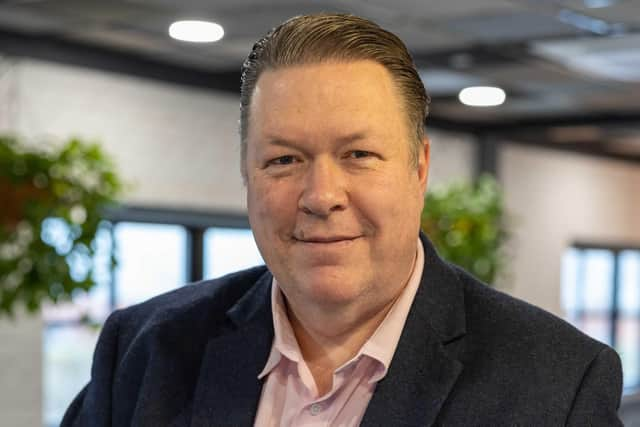Why many charities have IT systems that are not fit for purpose - Barry Alston
I’ve worked with policing and the public sector for more than 35 years and the main reason we are seeing this is many public services/charities' case management systems are not fit for purpose.
Charities and not-for-profit organisations need to feel in control of their data. They need to feel it is secure and will not be subject to a breach.
Advertisement
Hide AdAdvertisement
Hide AdHowever, small charities often still work on spreadsheets that have no encryption and have issues with the security and storage of data. It’s totally understandable as case management systems can be costly and they don’t want to spend money on back office or admin resources, as every penny spent there, is a penny not spent on delivering the actual frontline services for the people who need them.


I’m part of Claritas Solutions, a Wetherby-based IT company which only has UK-based data centres and none of our data or traffic is routed overseas. Having worked with many public and third sector organisations we understand the challenges of keeping control of your data sovereignty.
At Claritas, we don’t believe the right place for this type of information is with AWS or Azure. Cloud computing does bring with it many benefits and has transformed the way we work.
However, US cloud providers are subject to US legislation like the Patriot Act, giving foreign organisations access to data overriding the sovereign state's regulations.
Advertisement
Hide AdAdvertisement
Hide AdWhen someone has experienced crime, they need support and a multitude of agencies often step in. Each of those agencies needs to share information about the individual and their particular case and needs.
All those records need to be clear and concise and shared appropriately. It is also imperative that each victim or survivor is not having to relive the trauma of their experience by telling their story again and again because the agencies have not been able (because of data protection and system restrictions) to share the appropriate details with others.
This is also vital to ensure a holistic view of each case can be evidenced with outcomes being essential for reporting and donor management.
In response to this need, we’ve created a UK-based case management system that addresses all the above issues from multi-agency working to built-in compliance, all underpinned with UK-centric data storage and support.
Advertisement
Hide AdAdvertisement
Hide AdWe are looking for small charities with fewer than five employees to work with us for free and give us their verdict. There is no hidden agenda here, this is our way of giving something back with what we are good at…so they can focus on what they are good at, which at the end of the day is the most important bit – helping the people who need it.
Any IT system should always be about the end user, not IT for IT’s sake. The case management system charities use should meet the needs of the victims so that eventually they can return to as normal a life as possible within wider society. That is what we hope to help with.
Barry Alston is director of business development (public sector) at Claritas Solutions.
Comment Guidelines
National World encourages reader discussion on our stories. User feedback, insights and back-and-forth exchanges add a rich layer of context to reporting. Please review our Community Guidelines before commenting.